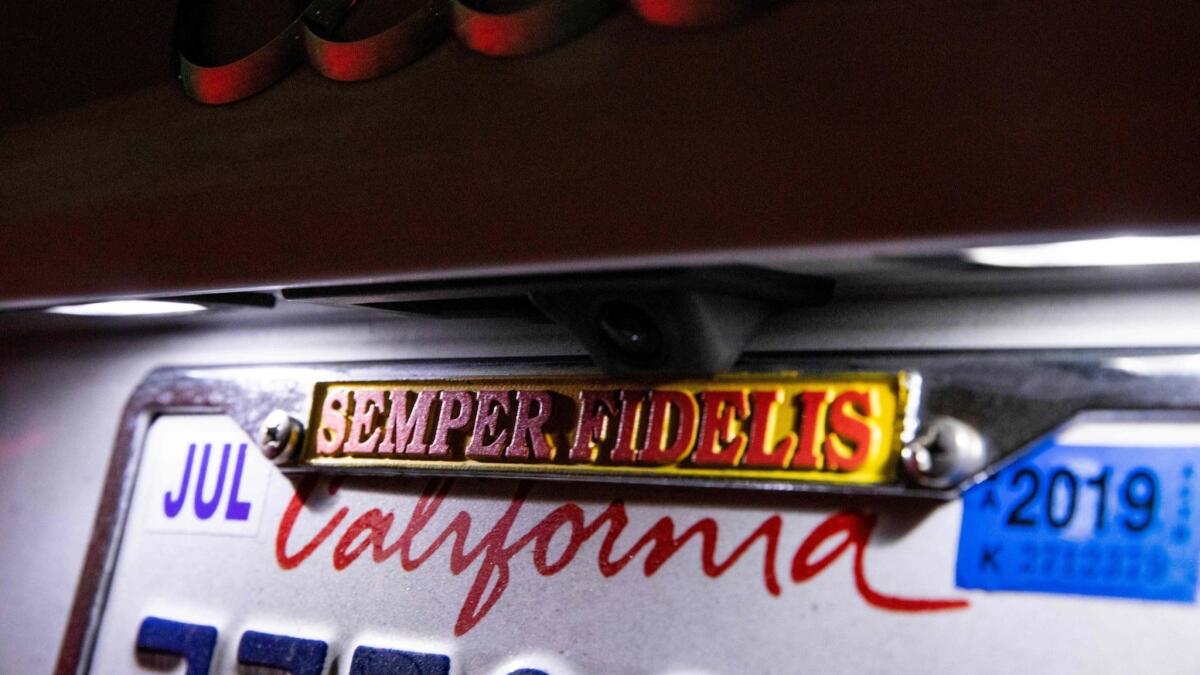Editorial: DMV needs to stop censoring your vanity license plate

- Share via
When Jonathan Kotler applied for a vanity license plate with the acronym COYW — which he said stood for “Come on You Whites” — the California Department of Motor Vehicles rejected his request. In a letter to Kotler, the DMV said the phrase could be interpreted as “offensive to good taste and decency.” It later told Kotler that the acronym “can have racial connotations.”
Kotler says he was referring to the widely used cheer for his beloved West London soccer team, the Fulham Football Club, whose players wear white jerseys and whose fans chant “Come on You Whites.” He explained this in detail in his appeal letter to the DMV, but still he was turned down. So Kotler, a professor of constitutional law at USC’s Annenberg School, filed suit against the DMV this week, arguing that its vaguely worded vanity-plate rules imposed content- and viewpoint-based restrictions, violating his rights under the 1st and 14th Amendments. (The DMV picked the wrong guy to mess with.)
Kotler is right, and would be right even if his acronym was intended to be offensive. If the license plate is a platform for individual expression — and we believe it is — then the state should not dictate the content of the message. The DMV is not society’s guardian of “good taste and decency.”
Enter the Fray: First takes on the news of the minute »
The DMV believes differently. People requesting personalized plates have to explain on the application the meaning of the phrase they want. And the DMV lists as many reasons to turn someone down — seven — as the number of characters allowed on the plate. Forbidden phrases include terms of lust, depravity, prejudice, hostility, contempt and profanity, in English or any other language. Just imagine all the possible ways to be offensive. Even the DMV acknowledged that in its letter to Kotler, saying it’s difficult to balance an individual’s constitutional right to free speech “while protecting the sensibilities of all segments of our population.”
The U.S. Supreme Court has ruled (mistakenly, in our view) that user-submitted designs for vanity plates amounted to government speech, and so are open to state control. But it seems obvious to us that once the state hands over the license plate as a forum for the plate holder’s creative writing, it isn’t the government speaking — the views belong to the owner of the plate.
Yes, removing the DMV as censor would lead to more license plates making offensive or vile statements. But think about all the bumper stickers with messages that make you want to cover your kids’ eyes. There are no government restrictions on bumper stickers. There’s only one sure way to avoid bad taste on future California license plates: The state can stop selling vanity plates. Until then, professor Kotler should have the right to cheer on his, um, Whites.
Follow the Opinion section on Twitter @latimesopinion or Facebook
More to Read
A cure for the common opinion
Get thought-provoking perspectives with our weekly newsletter.
You may occasionally receive promotional content from the Los Angeles Times.










